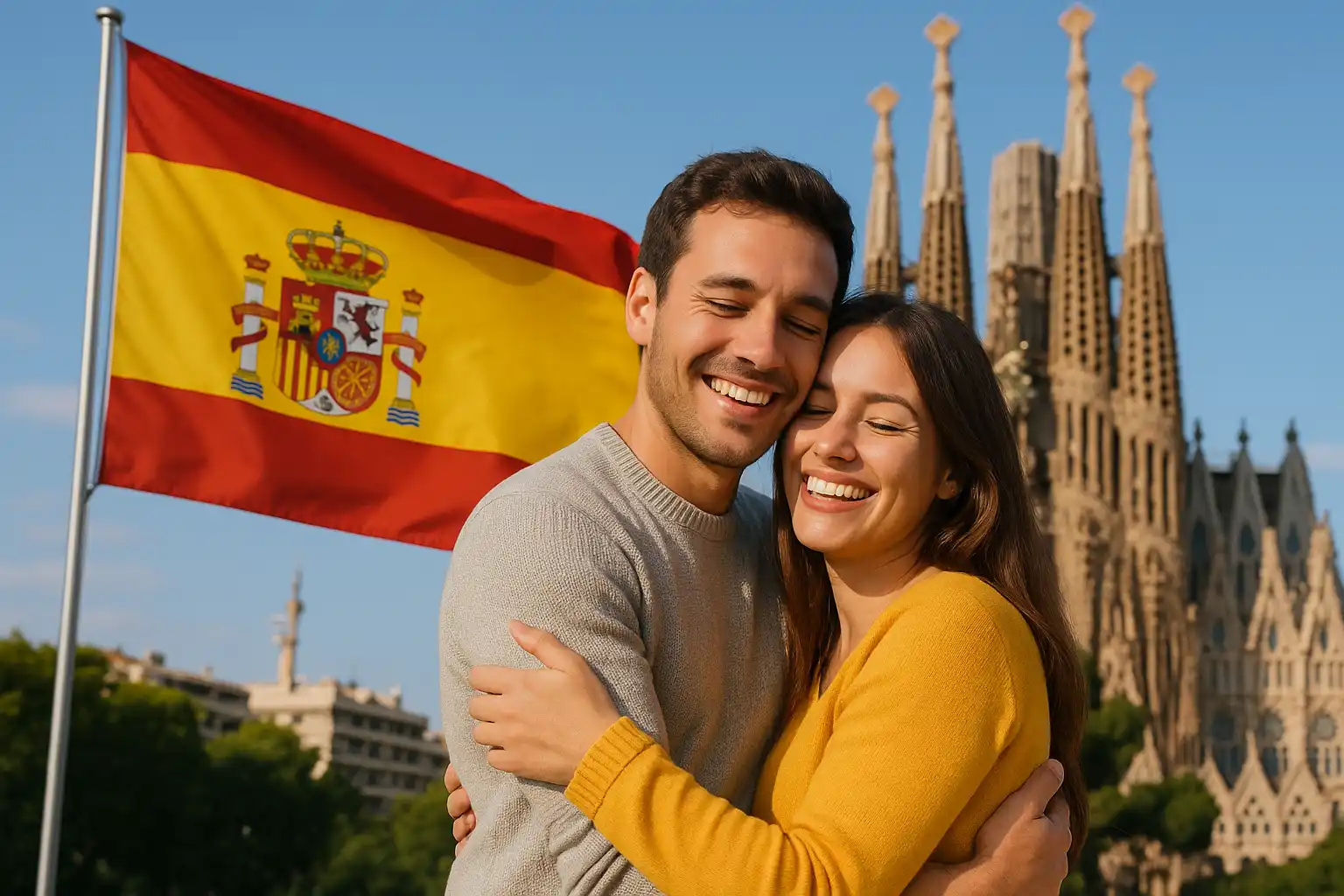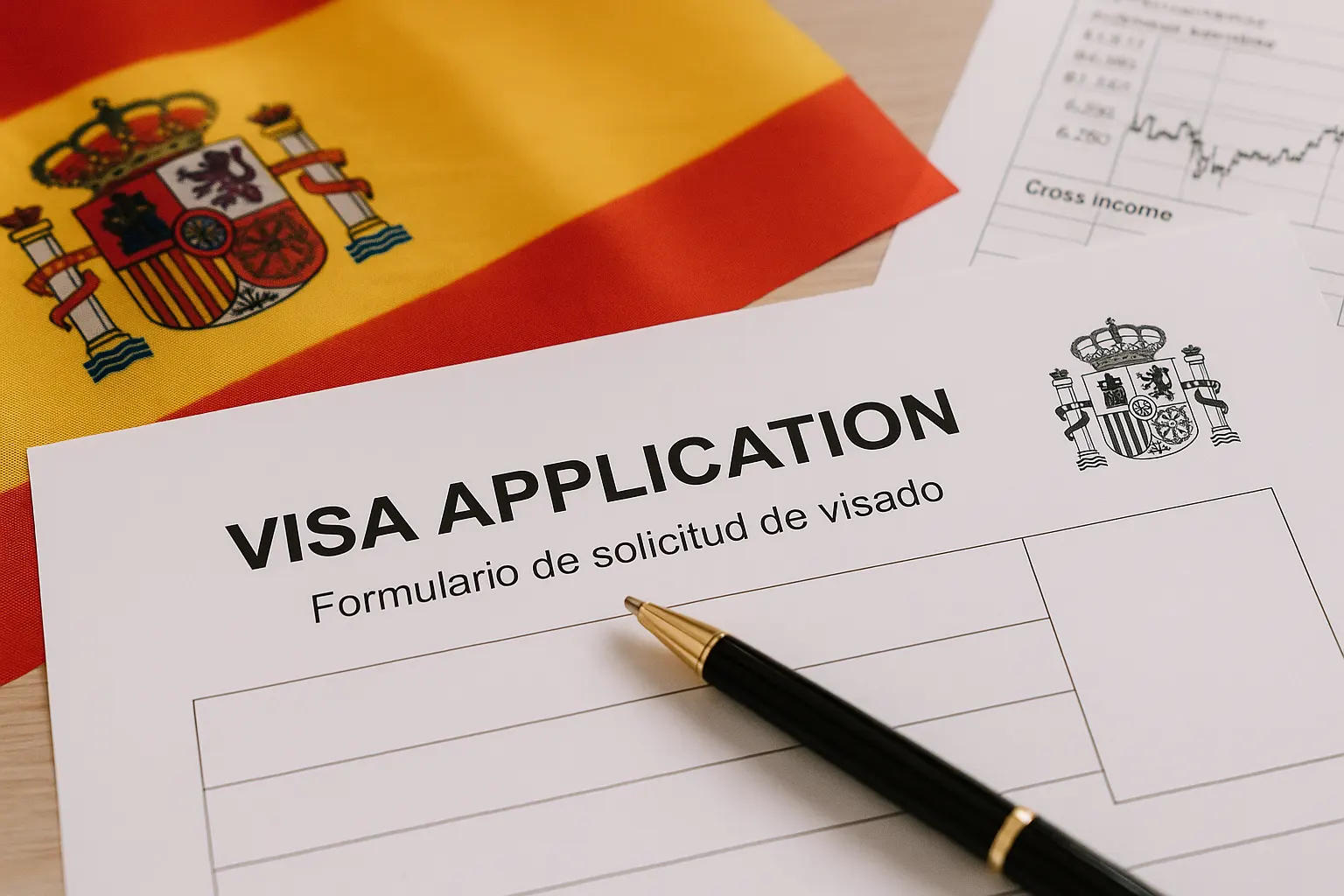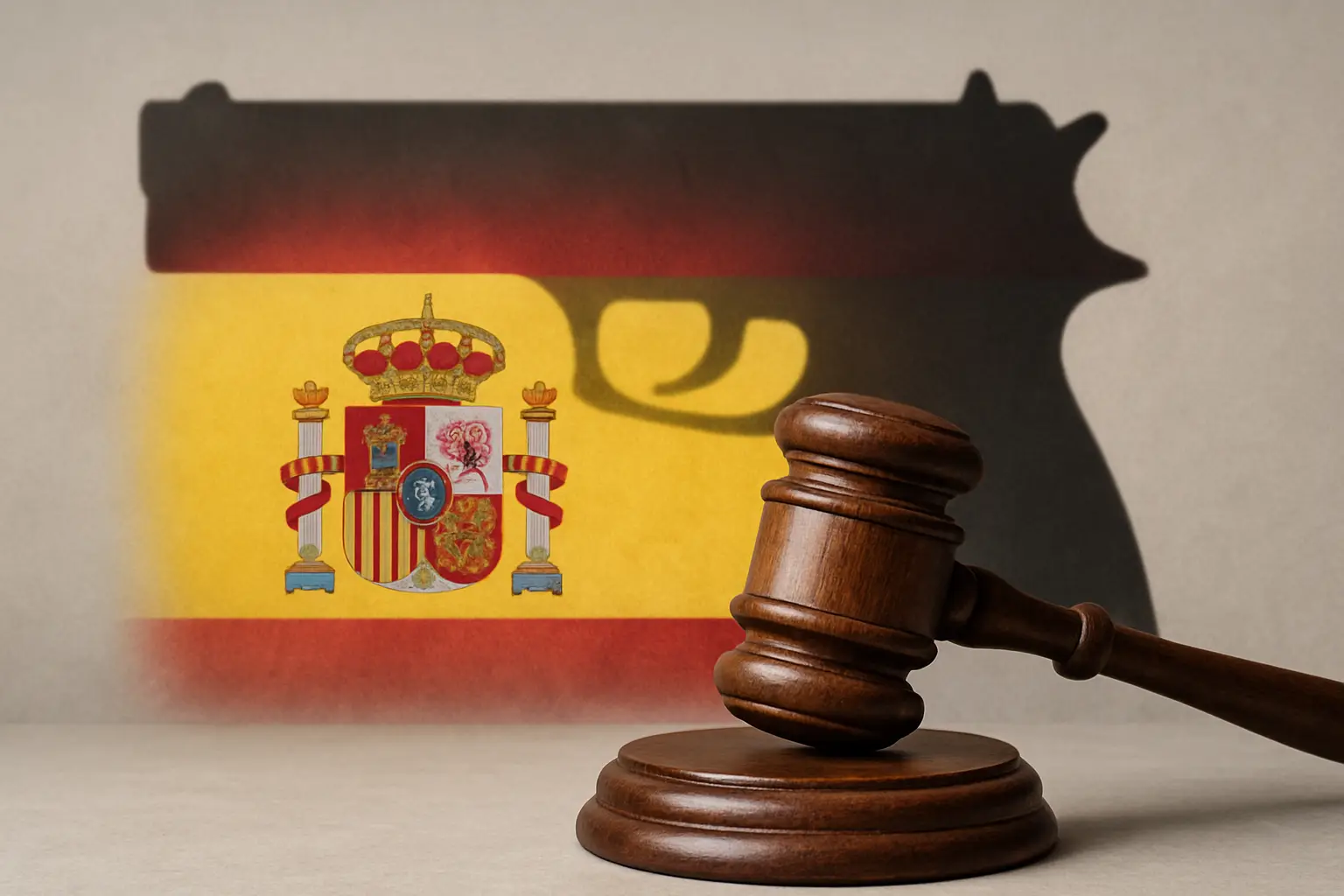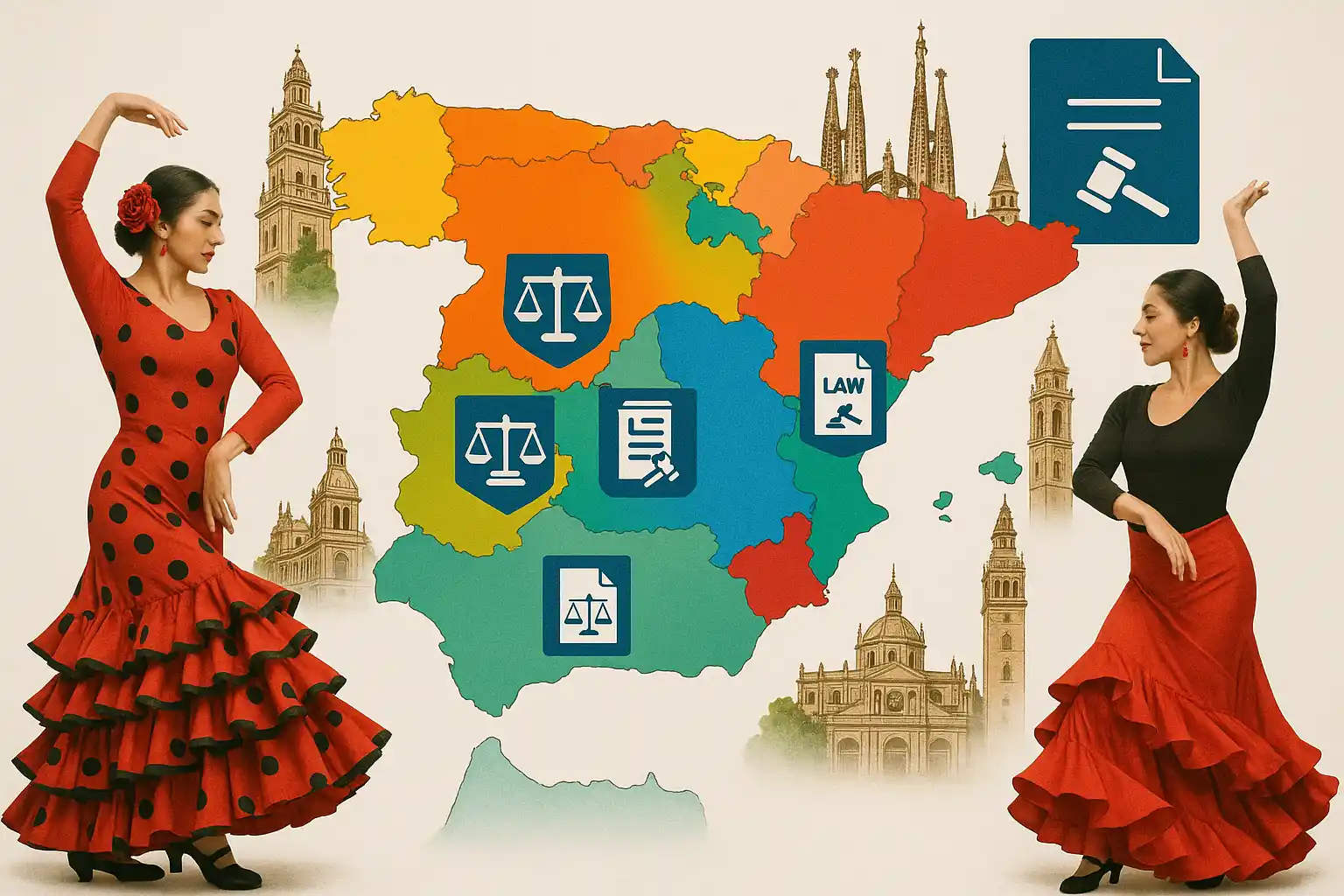Spain attracts a significant number of foreign nationals seeking residency due to its favorable climate, vibrant culture, and robust quality of life. Understanding how to get residency in Spain is essential for anyone considering this move. The process involves navigating various visa types and residence permits tailored to different personal and professional circumstances.
Securing the right visa or residency permit depends on clear knowledge of the options available. Each type has specific eligibility criteria and documentation requirements that must be met to ensure a smooth application process. Awareness of these distinctions helps applicants avoid common pitfalls and delays.
This article explores 7 main types of residency permits in Spain, outlining their key requirements:
- Student Visa
- Business Visas (Entrepreneur & Self-Employed)
- Non-Lucrative Residence Visa
- Digital Nomad Visa
- Work Permits & Highly Qualified Worker Visa
- Family Immigration & Reunification Visas
- Permanent Residency and Path to Citizenship
Readers will gain practical insights into each category, enabling informed decisions on how to become a Spanish resident effectively. The information is designed for clarity and actionable understanding, helping applicants prepare comprehensive applications aligned with Spanish immigration regulations.
Understanding Residency in Spain
Residency in Spain refers to the legal authorization allowing foreign nationals to live in the country for a defined period or indefinitely. There are two main types of residency:
- Temporary residency: This allows individuals to stay in Spain for longer than 90 days but less than five years. It is usually granted for specific reasons such as studying, working, or reuniting with family.
- Permanent residency: After living legally in Spain for five consecutive years with minimal absences, individuals can obtain permanent residency, which allows them to stay indefinitely without needing to renew their status.
Spain issues two main identification documents to residents:
- NIE (Número de Identificación de Extranjero): A unique identification number assigned to foreigners residing or conducting legal activities in Spain. It is essential for tax, banking, and official procedures.
- TIE (Tarjeta de Identidad de Extranjero): The physical card that contains the NIE and serves as proof of legal residency.
Legal Requirements for Spanish Residence Permits
To obtain any Spanish residence permit, you must meet certain legal requirements:
- Have a valid passport with sufficient remaining validity.
- Provide clean criminal record certificates from countries where you have resided within specified periods.
- Demonstrate adequate health insurance coverage, either public or private, that is valid in Spain.
Applicants must also fulfill specific financial requirements depending on the type of permit they are applying for and prove compliance with immigration regulations. Understanding these foundational elements is critical before engaging in the application process.
Next Steps After Obtaining Residency
After successfully obtaining your residency in Spain, it’s important to know the next steps to fully integrate into your new life. This includes:
- Registering locally
- Acquiring your TIE card
- Ensuring you maintain your legal status in the country
For more detailed guidance on navigating life after securing your residency, refer to this comprehensive resource on what happens after getting residency in Spain.
The Application Process for Spanish Residency Visas
Applying for residency in Spain involves a structured process managed by Spanish immigration authorities. Applicants need to determine the correct venue for submission, which depends on their current location and visa type.
Where to apply
From abroad: Submit the application at the nearest Spanish consulate or embassy. This is common for initial residency permits such as student visas or non-lucrative residence visas.
Within Spain: Applications for renewals, changes of status, or certain permits may be submitted at local immigration offices (Oficina de Extranjería) or police stations authorized to issue residence cards.
Step-by-step process
- Confirm eligibility and select the appropriate residency permit type.
- Gather all required documentation according to specific permit requirements.
- Complete the official application form provided by the relevant authority.
- Schedule an appointment if necessary, either via consulate websites or immigration office portals.
- Submit the application along with supporting documents and pay any applicable fees.
- Attend biometric data collection appointments when requested (fingerprints and photographs).
- Await decision notification; processing times vary depending on type and workload.
Common required documents
- Valid passport with minimum six months validity beyond application date.
- Recent passport-sized photographs meeting Spanish photo standards.
- Proof of financial means demonstrating sufficient funds to support stay (bank statements, income proof).
- Comprehensive private health insurance covering medical expenses in Spain without copayments.
Understanding how to become resident of Spain begins with meticulous document preparation and selecting the correct submission office that aligns with the applicant’s situation and permit type.
1. Student Visa for Residency in Spain
Obtaining a student visa Spain requires meeting specific education requirements and enrollment criteria. Applicants must be accepted by a recognized Spanish educational institution, enrolling in a program that demands at least 20 hours of study per week. This ensures compliance with regulations designed to prioritize genuine academic pursuits.
Financial proof is essential when applying for this visa. Prospective students need to demonstrate access to approximately €10,000 per year to cover living expenses during their stay. This financial threshold confirms the applicant’s capacity to support themselves without resorting to unauthorized work or public assistance.
Private health insurance coverage is mandatory throughout the residency period. The policy must provide equivalent protection to the Spanish public health system, safeguarding both the student and the healthcare providers.
Key eligibility points include:
- Enrollment in an accredited Spanish educational institution
- Minimum study load of 20 hours per week
- Proof of financial means (~€10,000 annually)
- Valid private health insurance with comprehensive coverage
This visa type facilitates residency for educational purposes but does not authorize employment within Spain, except under very limited conditions specified by law. Understanding these requirements is crucial for how to get residency in Spain through academic channels.
2. Business Visas: Entrepreneur & Self-Employed Options
Spain has specific residency options for foreign nationals who want to start or operate a business. The two main permits in this category are the Entrepreneur Visa and the Self-Employed Work Permit.
Entrepreneur Visa
This visa is designed for individuals who plan to develop innovative business projects that contribute to Spain’s economic development. Here are the key requirements:
- Submission of a detailed business plan demonstrating innovation, job creation potential, and economic viability.
- Prior approval from the Spanish Ministry of Economy based on the project’s strategic value.
- Proof of sufficient investment capital and financial resources to sustain the enterprise.
- Evidence of relevant professional qualifications or experience related to the proposed business.
The Entrepreneur Visa allows for long-term residency and enables visa holders to manage and expand their businesses in Spain.
Self-Employed Work Permit
This permit is intended for freelancers and independent professionals. Applicants must meet the following requirements:
- Present a viable and sustainable business plan outlining planned activities, target market, and financial projections.
- Show proof of financial means to support business operations and personal living expenses.
- Register with relevant Spanish tax authorities and social security systems upon approval.
- Demonstrate adequate qualifications or licenses if applicable to the profession.
Both permits require careful preparation of documents and compliance with regulatory standards. They offer pathways for investors and entrepreneurs who want to live and work legally in Spain through business-related activities.
3. Non-Lucrative Residence Visa Requirements
The non-lucrative residence visa permits foreign nationals to reside in Spain without undertaking any work or economic activity within the country. It is designed for individuals who can sustain themselves financially through income sources originating outside Spain.
This visa is particularly beneficial for retirees, as outlined in this exploration of the Non-Lucrative Visa Spain: Eligibility & Benefits, which delves into the eligibility criteria, financial requirements, health insurance stipulations, and overall benefits for retirees seeking residence.
Key criteria include:
- Financial Means: Applicants must demonstrate sufficient financial resources to cover living expenses. The required minimum amount is approximately €28,800 held in bank accounts or equivalent proof of stable income. This figure ensures the applicant can support themselves without relying on employment in Spain.
- Private Health Insurance: Proof of comprehensive private health insurance valid in Spain is mandatory. This insurance must cover all risks typically covered by the Spanish public health system and have no co-payment clauses.
This visa does not grant authorization to work or engage in any commercial activities on Spanish soil, emphasizing its purpose for retirees, investors, or individuals with independent means seeking residency for lifestyle reasons.
Applicants should present documentation including:
- Valid passport
- Evidence of financial solvency (bank statements, pension receipts)
- Private health insurance policy details
- Criminal background certificate from country of origin
Meeting these requirements facilitates obtaining a Spain residency visa that prioritizes self-sufficiency without employment obligations. Furthermore, this guide on transitioning from a non-lucrative visa to permanent residency provides valuable insights into the application steps and key requirements for making such a transition successfully.
4. Digital Nomad Visa
Spain’s Digital Nomad Visa offers an exciting opportunity for remote workers and freelancers to live and work legally in the country while maintaining employment with foreign companies or clients.
Designed to attract international talent and stimulate local innovation, this visa allows digital professionals to reside in Spain for up to 3 years, with the possibility of renewal up to 5.
Applicants must demonstrate stable remote income, possess comprehensive private health insurance valid in Spain, and provide a clean criminal record certificate from their home country.
The application process is streamlined to support tech-savvy professionals, including submitting documentation such as a valid passport, proof of sufficient financial means, and evidence of remote work arrangements.
This visa not only grants access to Spain’s vibrant culture and lifestyle but also paves the way for longer-term residency options for those seeking to make Spain their home base.
5. Work Permits & Highly Qualified Worker Visa Requirements
To obtain a work permit in Spain, you need to meet certain criteria based on the job offer and your qualifications. The main way to get a work permit is by having a valid employment contract that matches Spain’s shortage occupation list. This list identifies jobs with labor shortages, making it easier for foreign workers to get permits for these positions.
Key conditions for the regular work permit include:
- A formal job offer from a Spanish employer.
- The position must correspond to occupations designated as in-demand on the shortage list.
- Evidence of the employer’s compliance with labor regulations.
The Highly Qualified Worker Visa is designed for professionals in managerial or technical roles who earn above-average salaries. This visa allows individuals with specialized skills to live and work in Spain, contributing to its economy.
Eligibility highlights consist of:
- Minimum gross annual salary exceeding €40,000.
- Employment in positions classified as managerial, specialist, or technical.
- Proof of qualifications and relevant experience supporting the role.
Both permits lead to a Spain residence permit allowing legal stay and work within the country. Understanding these options is essential for individuals asking how to get residency in Spain through employment avenues.
For those considering remote work while living in Spain, exploring Spain’s Digital Nomad Visa could be beneficial. This visa not only allows US citizens to work remotely but also enables them to immerse themselves in the rich Spanish culture while meeting specific visa requirements for a seamless transition.
6. Family Immigration & Reunification Visas
Family immigration Spain reunification visa requirements enable close relatives of legal residents or Spanish citizens to join them in Spain. The process typically involves either a joint application submitted together with the primary resident’s permit or a separate family reunification procedure initiated after the sponsor establishes residency.
Eligible family members include:
- Spouses or registered partners
- Minor children under 18 years old
- Dependent adult children or parents in certain circumstances
- Other relatives if dependent on the sponsor due to exceptional reasons
Essential documentation must be provided to demonstrate eligibility:
- Valid passports of both the sponsor and family member(s)
- Proof of relationship such as marriage certificates, birth certificates, or legal guardianship documents
- Evidence of the sponsor’s legal residence status in Spain (residence permit or citizenship certificate)
- Proof of sufficient financial means to support dependents without public assistance
- Private health insurance coverage for all family members joining the sponsor
The Spanish authorities require that sponsors maintain adequate housing conditions for the reunited family. This condition ensures compliance with local housing standards and safety regulations. Meeting these requirements is crucial for obtaining approval of family immigration or reunification visas.
7. Permanent Residency & Path to Spanish Citizenship
Achieving Permanent residency in Spain, which becomes attainable after five consecutive years of legal residence with minimal absences, is a significant milestone. This status grants holders the right to:
- Live and work indefinitely in Spain without renewing temporary permits.
- Access public healthcare and education systems on equal terms with Spanish citizens.
- Receive social security benefits under applicable conditions.
Applicants must demonstrate continuous legal residence, meaning absences from Spain should generally not exceed six months per year or more than ten months over the five-year period. Periods spent under student visas typically do not count towards the five-year requirement for permanent residency or citizenship.
The path from permanent residency to Spanish citizenship requires ten years of continuous residence, though there are reduced periods for nationals from certain countries (e.g., two years for Latin American nationals) or through marriage to a Spanish citizen (one year). Citizenship confers full political rights, including voting and eligibility for public office.
Understanding these permanent residency Spain citizenship Spain requirements is essential for long-term planning and ensuring compliance with immigration regulations.
Key Considerations When Applying for Residency in Spain
Meeting the requirements checklist Spain residency application is crucial for a successful process. Every document needs to be accurate and up to date. Essential documents include:
- Valid passport scans with sufficient validity beyond the visa period
- Certified criminal background certificates from countries of residence
- Proof of financial means aligned with the specific visa type
- Health insurance documentation covering medical expenses in Spain
Failure to provide these may lead to delays or outright rejection.
Compliance with residence periods is equally important. Absences exceeding allowed limits can result in loss of residency status, affecting eligibility for renewal or permanent residency. Keeping records of entry and exit dates supports proof of continuous residence.
Adhering closely to legal requirements safeguards your stay and facilitates smoother transitions between different permit types or eventual citizenship applications.
How NIM Immigration Lawyers Can Support Your Application
NIM Immigration Lawyers specialize in Spanish immigration law, offering expert guidance on how to get residency in Spain. Their team provides comprehensive support for digital visa applications, ensuring each case is handled with precision and professionalism.
Key features of their service include:
- Personalized advice: Tailored strategies based on individual circumstances and residency goals.
- Thorough case analysis: Detailed examination of eligibility criteria to identify the most suitable residency permit options.
- Prompt communication: Timely responses to queries and updates throughout the application process.
- Affordable professional services: Transparent pricing that balances quality with cost-effectiveness.
Clients benefit from a client-focused approach emphasizing trust and loyalty. This ensures applicants receive clear, practical steps tailored to their unique needs, minimizing delays and maximizing the chances of approval.
Conclusion
Successfully navigating how to get residency in Spain requires meticulous preparation of all necessary documentation. Incomplete or inaccurate paperwork can lead to delays or denials, making thoroughness essential at every stage.
Legal compliance remains a critical factor throughout the residency application process. Adhering to visa conditions, maintaining valid health insurance, and respecting residency duration rules protect your status and open pathways to permanent residency and citizenship.
Key reminders for applicants:
- Prepare all documents carefully: passports, financial proofs, criminal records, and health insurance certificates.
- Understand specific requirements for each permit type to avoid unexpected obstacles.
- Maintain continuous legal residence to qualify for long-term benefits.
Take these next steps confidently armed with knowledge about Spain’s residency options, their benefits, and procedural details. For personalized guidance or further questions on how to apply residency Spain next steps overview benefits contact information, consulting professionals like NIM Immigration Lawyers ensures expert support tailored to your situation.














